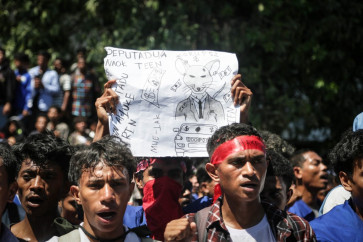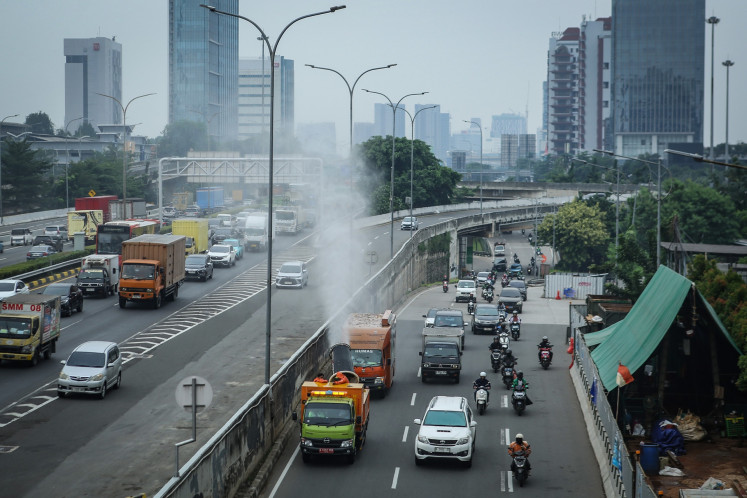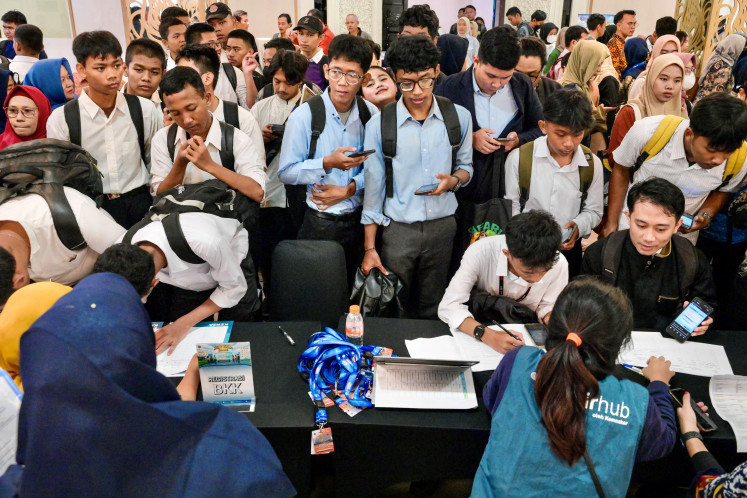Popular Reads
Top Results
Can't find what you're looking for?
View all search resultsPopular Reads
Top Results
Can't find what you're looking for?
View all search resultsYogyakarta must obey RI laws in land rights regulation: Lawmaker
Regardless of Yogyakartaâs status as a special region, the provincial administration must refer to the 1960 Basic Agrarian Law (UUPA) to regulate land ownership in its jurisdiction to avoid disputes with both local residents and the state, a leader of the countryâs legislative body has said
Change text size
Gift Premium Articles
to Anyone
R
egardless of Yogyakarta's status as a special region, the provincial administration must refer to the 1960 Basic Agrarian Law (UUPA) to regulate land ownership in its jurisdiction to avoid disputes with both local residents and the state, a leader of the country's legislative body has said.
Speaking to reporters on Wednesday, Deputy House of Representatives Speaker Fadli Zon said that Law No. 13/2012 on Yogyakarta's special status, despite mentioning land rights, was not a lex specialis (specialized law) overriding the UUPA, the country's main reference point for land ownership affairs.
'If [Yogyakarta] does not refer to the UUPA, it will lead to new problems,' the Gerindra Party politician said during a visit to the city.
Fadli, who also leads a special House team tasked with overseeing the implementation of the Special Status Law, called on the Yogyakarta provincial administration to respect other laws prevailing in the country, as it was still a part of the Unitary State of the Republic of Indonesia, or NKRI.
'The law on Yogyakarta's special status is only lex specialis to Law No. 23/2014 on regional administration,' he said, adding that Presidential Decree No. 33/1984 and Yogyakarta Provincial Bylaw No. 3/1984 had confirmed the full implementation of the UUPA in the province.
Based on the Special Status Law, Yogyakarta's provincial administration is currently making an inventory of the lands claimed as SG (Yogyakarta sultanate grounds) and PAG (Pakualaman sultanate grounds), which had been previously recognized by the colonial law Rijksblad.
The process has ruffled feathers in the community, as any land with no clear ownership documents is now considered to belong to the Yogyakarta or Pakualaman sultanates.
Article 32 of the Special Status Law gives the palace and principality the status as entities legally owning land identified as SG and PAG.
The law also distinguishes between two types of SG and PAG: keprabon (crown lands) and non-keprabon.
Keprabon lands are lands on which the palace and principality buildings are located, while non-keprabon lands are lands used by the people or institutions and land used by people without ownership documents.
Conflicts originating from claims by the Yogyakarta and Pakualaman sultanates over land have been increasing in the province following the implementation of the Special Status Law.
Land contested lies in Watukodok Beach, Gunungkidul and in Gondomanan, Yogyakarta city, among other places.
Farmers on Kulonprogo coast, for example, have been evicted from land claimed by Pakualaman, with the site to be turned into an iron sand mine and an airport.
Yogyakarta Governor Hamengkubuwono X, who is also the sultan, has repeatedly insisted that the UUPA has never been fully implemented in the province. He also claims that no land in Yogyakarta belongs to the state.
The governor's stance recently received support from Agrarian and Spatial Planning Minister Ferry Mursyidan Baldan, who suggested that the Special Status Law could serve as a standard reference for regulating land issues in the province.
The Yogyakarta provincial administration's legal bureau head Dewo Isnu Broto Imam Santoso also challenged Fadli's argument.
'The law on Yogyakarta's special status is lex specialis to [laws] regulating five issues: the filling of governor and deputy governor posts, [regional] institutional management, culture, defense and spatial planning,' Dewo said.
The coordinator of the Yogyakarta-based Alliance of the Republic of Indonesia's Integrity (AKRI), Indra, meanwhile, said many local residents living on Yogyakarta's river banks could not apply for land ownership documents, as the land they inhabit is planned for takeover by the sultanate.
Indra urged the local administration to refer to the UUPA to help save the residents from eviction.
'This is a struggle that we will continue,' he said.










